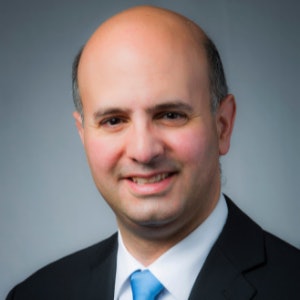
With adult-use cannabis sales recently coming online in New Jersey, one community college is already working to implement specialized programs in cannabis business to help to provide equal opportunities for students looking to enter the industry.

Hudson County Community College (HCCC), located in Jersey City, New Jersey, is heavily focused on meeting the needs of the community it serves, says Chris Reber, Ph.D., president of HCCC.
Reber says HCCC has been watching the growth of cannabis initiatives in New Jersey for quite some time. The college knew it wanted to play a role in this new, emerging industry, which can provide an array of job opportunities for students.
"We want to do everything we can to make it possible for the students we serve to … have the skills and training, to not only to seek employment in this industry, but to be competitive in this industry," he says. "Many of the folks that we serve aren't coming from backgrounds with lots of resources. … So, we're really interested in doing our role as a community college to help students who are interested in this to be prepared and able to be competitive and gain employment and [accomplish] other goals they might have."
Starting this summer, HCCC will offer for-credit and non-credit cannabis-related programs for students, including a cannabis business degree and a New Jersey cannabis licensing workshop.
RELATED: LIM College in New York Launches Bachelor of Business Degree in Cannabis
Cannabis Education
The New Jersey cannabis licensing workshop is a virtual, 4-week, non-credit program that "will provide those looking to enter the cannabis industry with an overview of what it takes to apply for and operate a state-licensed establishment," says Lori Margolin, associate vice president of continuing education and workforce development at HCCC.

The workshop will be instructed by Jessica F. Gonzalez, a cannabis and intellectual property attorney at Hiller, PC and the general counsel for Minorities for Medical Marijuana Inc. Margolin says that HCCC will continue to look to industry experts as course instructors and develop courses based on the community needs and the industry as it progresses.
HCCC is also working to develop cannabis-related events for students, she says. The college is partnering with cannabis education and events company Cannademix to host a free educational event June 23, where individuals can learn about the different ways to get involved in the industry.
Aside from the licensing workshop and events, HCCC is also offering three for-credit options for students, which will help prepare them for jobs within the cultivation, manufacturing, delivery, wholesale and retail sectors of the cannabis industry, says Ara Karakashian, Ph.D., associate dean at HCCC.
The Associate in Science Business Administration – Cannabis Studies is a 60-credit program that incorporates a management curriculum, accounting and entrepreneurship, and a host of general education courses that are required by New Jersey to earn a degree, Karakashian says.
The associate degree also includes four cannabis lecture courses. The first course is Cannabis Compliance, which will cover seed-to-sale software tracking and the application processes for businesses, he says.
"The second course is Justice in Cannabis, which is essentially a history lesson … about the legalization efforts worldwide, not just domestically. That'll be tailored specifically to New Jersey as needed," he says. "The third course is Cannabis Health and Safety, which will incorporate two certifications, the OSHA 30 certification and ServeSafe manager food safety certification. The fourth and final lecture course is the Cannasseur, which will utilize the sampling and smelling of terpenes, between five and ten specific strains of cannabis, or more common ones."
HCCC is also offering a Cannabis Business Management Academic Certificate, a 33-credit program that includes all four cannabis lecture courses and management, entrepreneurship, business communications and law classes. He says that the program will provide students with the skills to take on a supervisor or manager role in the industry.
The college is also providing a shorter program for students, which they can essentially complete in one semester. The Cannabis Business Agent Proficiency Certificate is a 12-credit program that will incorporate three of the cannabis lecture courses, aside from Cannasseur. He says it is designed to prepare students for entry-level positions, such as a retail employee.
"These courses currently are planning on being offered on the ground in your classic form, classroom setting. However, I've already been speaking to our center for online learning and the plan is to create all four of these as best as possible as fully online courses to launch them in early 2023," he says, adding that these programs will run every fall and spring semester, and summer if demand permits.
Looking Ahead

Karakashian says that since HCCC announced it is launching these programs, the feedback from students has been great. The college is already receiving calls from people daily inquiring about program start times, he says.
In the future, HCCC hopes to implement on-site cultivation and cooking courses within its culinary arts school, which is the sixth-ranked program in the nation by Best Choice Schools, he says.
"Once things are a little more loosened federally … we'd like to have the growing of plants involving our stem division and having the biology extraction and all of those processes incorporated into the curriculum," he says. "We're also known at this college for our culinary arts program, which is in its 40th year. Of course, we'll have cooking with cannabis courses, which again is something that is probably 12, 18 months down the road."
And Reber says that HCCC will continue to expand as the industry grows and put social equity at the forefront.
"We see distinctive opportunities and contributions in this set of programs, [and we are] focused on making it possible for individuals who might normally be left out of an emerging industry like this because of lack of resources, networking or training,” he says. “We want to make it possible for them to have the opportunity."


























